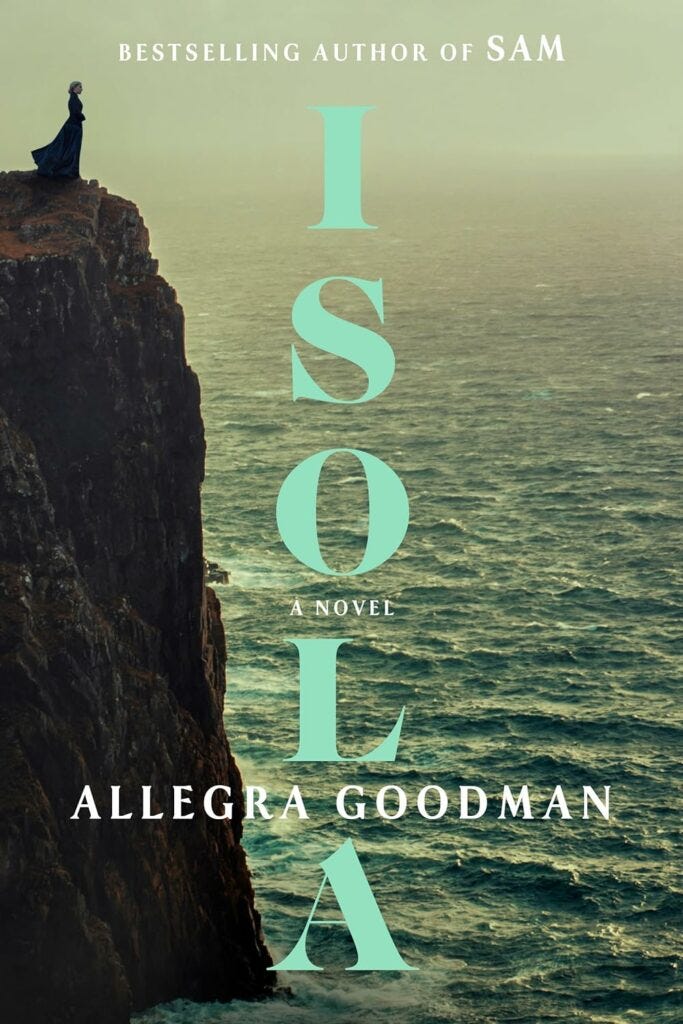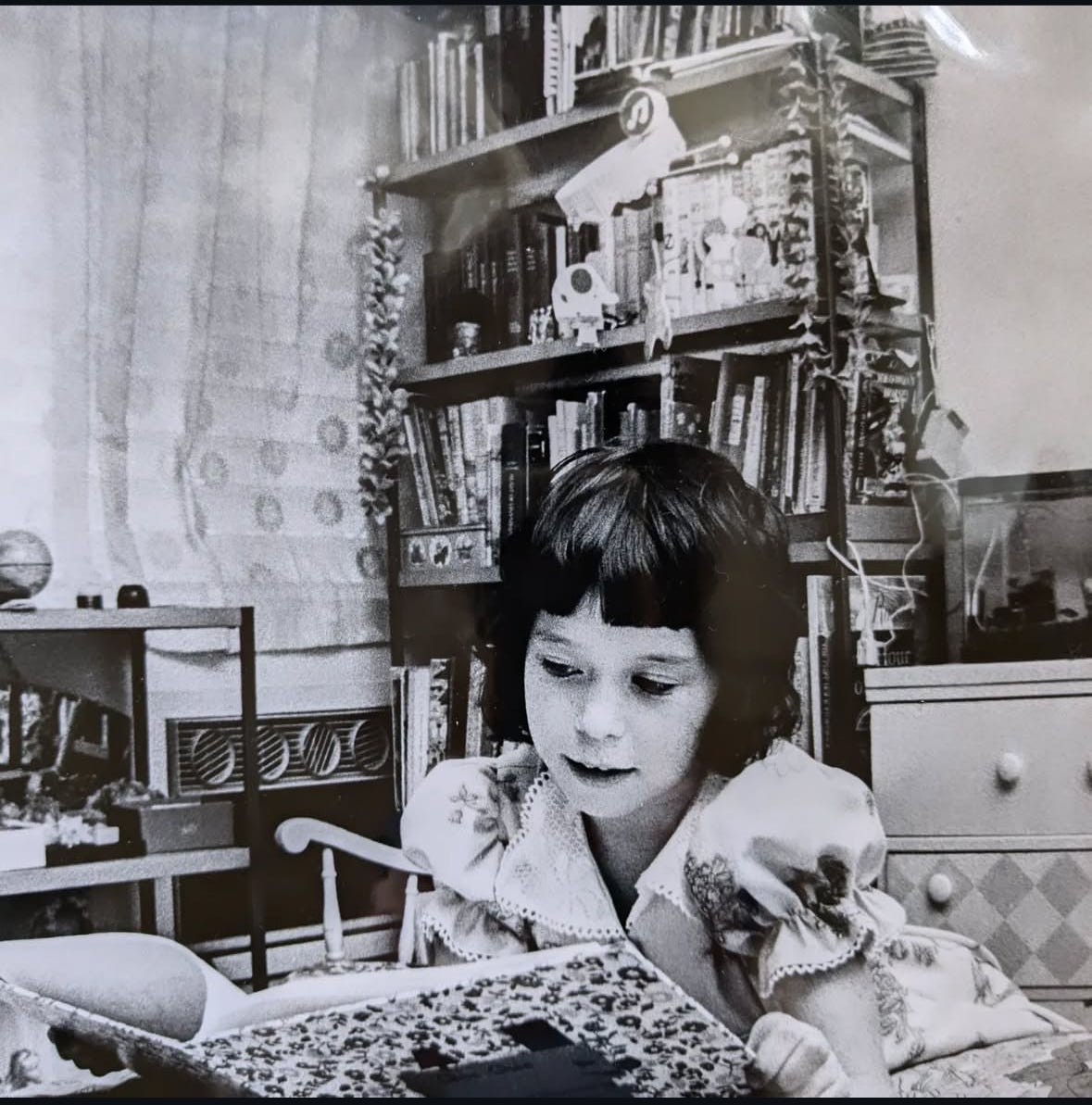Bestselling novelist Allegra Goodman wants you to go for quality over quantity
"Write a hundred words, and just make them good words."
This week I’m thrilled to be talking with Allegra Goodman, author of numerous novels including her newest, Isola, which was a Reese's Book Club selection, and her first, Katterskill Falls, which was a National Book Award finalist. Allegra also wrote two story collections, The Family Markowitz and Total Immersion, as well as a novel for younger readers, The Other Side of the Island. Allegra's fiction has appeared in The New Yorker and has been anthologized in O. Henry Awards and Best American Short Stories. She was raised in Honolulu and now lives with her family in Cambridge, Mass.
What really sticks out to me from our conversation is how Allegra has found a groove that she works consistently—a daily and weekly routine that includes plenty of time for swimming, reading, and writing, even when working on multiple projects. She admits she doesn’t write much each day—maybe just a page or two. But by taking her time and revising as she goes, that consistency adds up to substantial input.
As Allegra says, “The pages will add up if you don't discourage yourself or push so hard that it becomes a chore or you feel like a drudge.”
Listen to Allegra’s episodes:
Allegra Goodman, practical matters: Why her advice is to write 100 words a day
Allegra Goodman, inner stuff: Thinking of writing as being a performer
Allegra Goodman, what’s next: Setting a goal for people to think much harder and imagine much better
Or, get the complete interview in one episode by becoming a paid subscriber and
supporting my work and becoming the recipient of my undying gratitude:
We covered:
Getting published for the first time as a freshman in college by an encouraging editor who “discovered” her
How it’s a love of writing, and not a drive to be published, that will sustain you over the long-term
Learning to build patience and endurance when going from writing short stories to writing novels
Her case for setting very low daily writing goals
Why she doesn’t ascribe to the “shitty first draft” school of thought
Her daily and weekly writing routines
How having grown children makes those routines possible
Why she only works on shorter pieces one day per week
The specific times when she’ll listen to a podcast—and when she’ll choose to keep her ears podcast-free
The nightly ritual that helps her get started on work the next day
How non-digital activities feed her creative process
The benefits and mechanics of writing two books at the same time
How she thinks of being a writer like being a performer “in the theater of a reader’s imagination”
Why starting a new project is the hardest part–and how she gets herself through it
I'd rather have a really good paragraph than write three pages or ten pages that have to be redone later or cut later on.
How she trusts her inner critic to offer constructive criticism
The one part of the writing process that really makes her nervous
How she got past being pigeon-holed as a writer of a certain genre and built a career on writing many different types of stories
Making the shift from being intimidated by studying the great works of literature to being inspired by them
Why now is the best time of her career
How living to be older than her mother was when she died influences Allegra’s work and her life
How it’s OK to have multiple different voices as a writer
An amazing story about how her mother stood up for herself in the 1970s–and how that example inspires Allegra to this day
A sneak peek at her next book, which is currently in the copy editing phase
Her dreams for her work in the next ten years (super inspiring!)
Specific things we covered:
Commentary, a Jewish/political journal
Origin Story: The Trials of Charles Darwin, by Howard Markel
“Alaska” by Maggie Rogers (which reminds her of Isola)
Where to Connect with Allegra:
Links to Past Episodes
Jane Roper, practical matters: Taking rejection personally even though you know it’s unavoidable and subject to luck
Jane Roper, inner stuff: Giving yourself permission to screw up + feeling like the worst person in the MFA program
Jane Roper, what’s next: That moment when you can clearly see the recurring themes in your creative work–heck, in your life
Paula Whyman, practical matters: Guidance for knowing whether you really want to turn that idea into a book
Paula Whyman, inner stuff: Why “write what you know” is misguided advice
Paula Whyman, what’s next: The upside of winter + learning how to roll with setbacks
Cynthia Weiner, practical matters: How living a boring life helps her write
Cynthia Weiner, inner stuff: How to tolerate the discomfort that comes with “airing your dirty laundry” aka writing anything remotely personal
Cynthia Weiner, what’s next: Fast food, diet soda and Eddie Vedder







